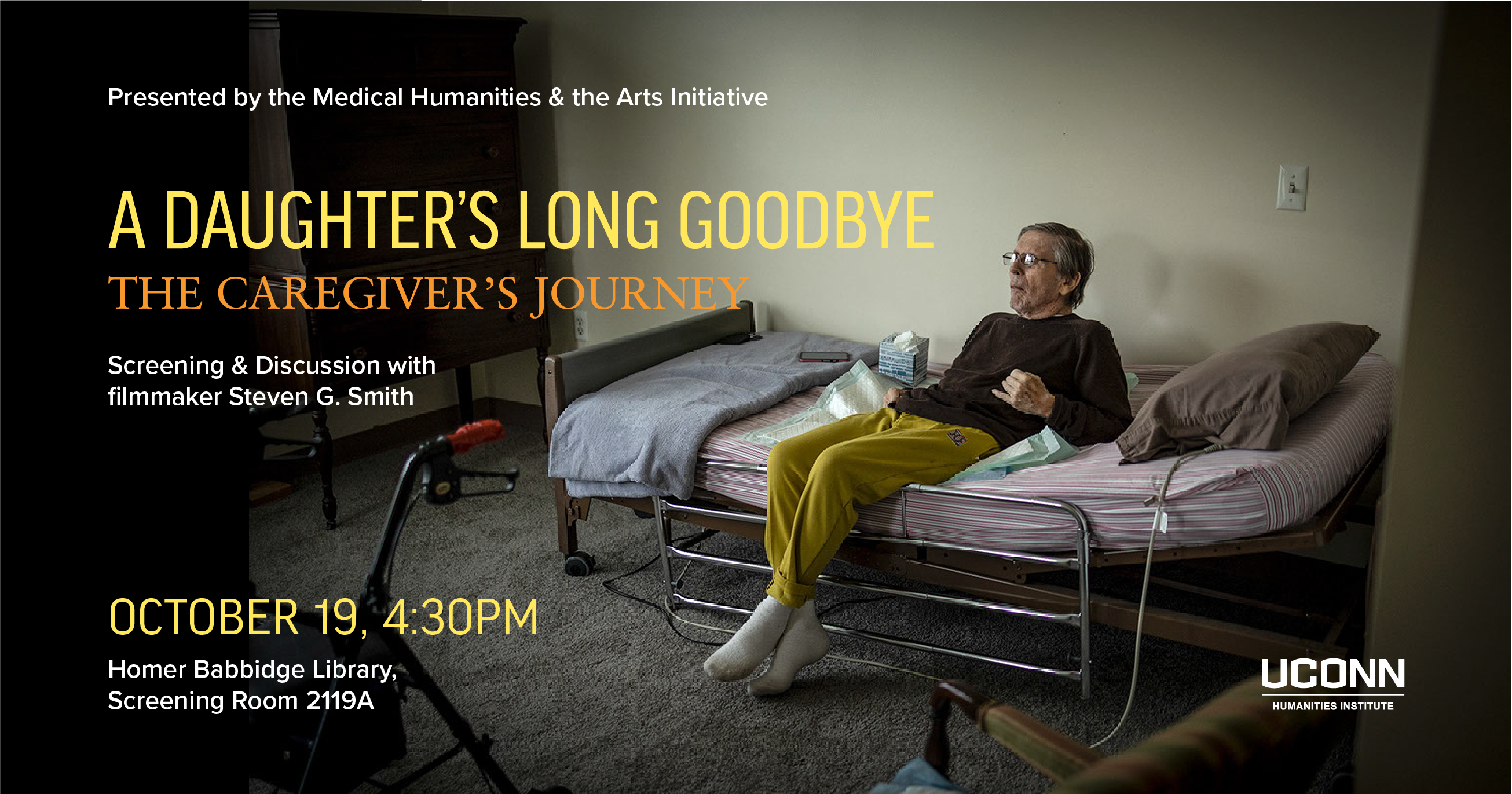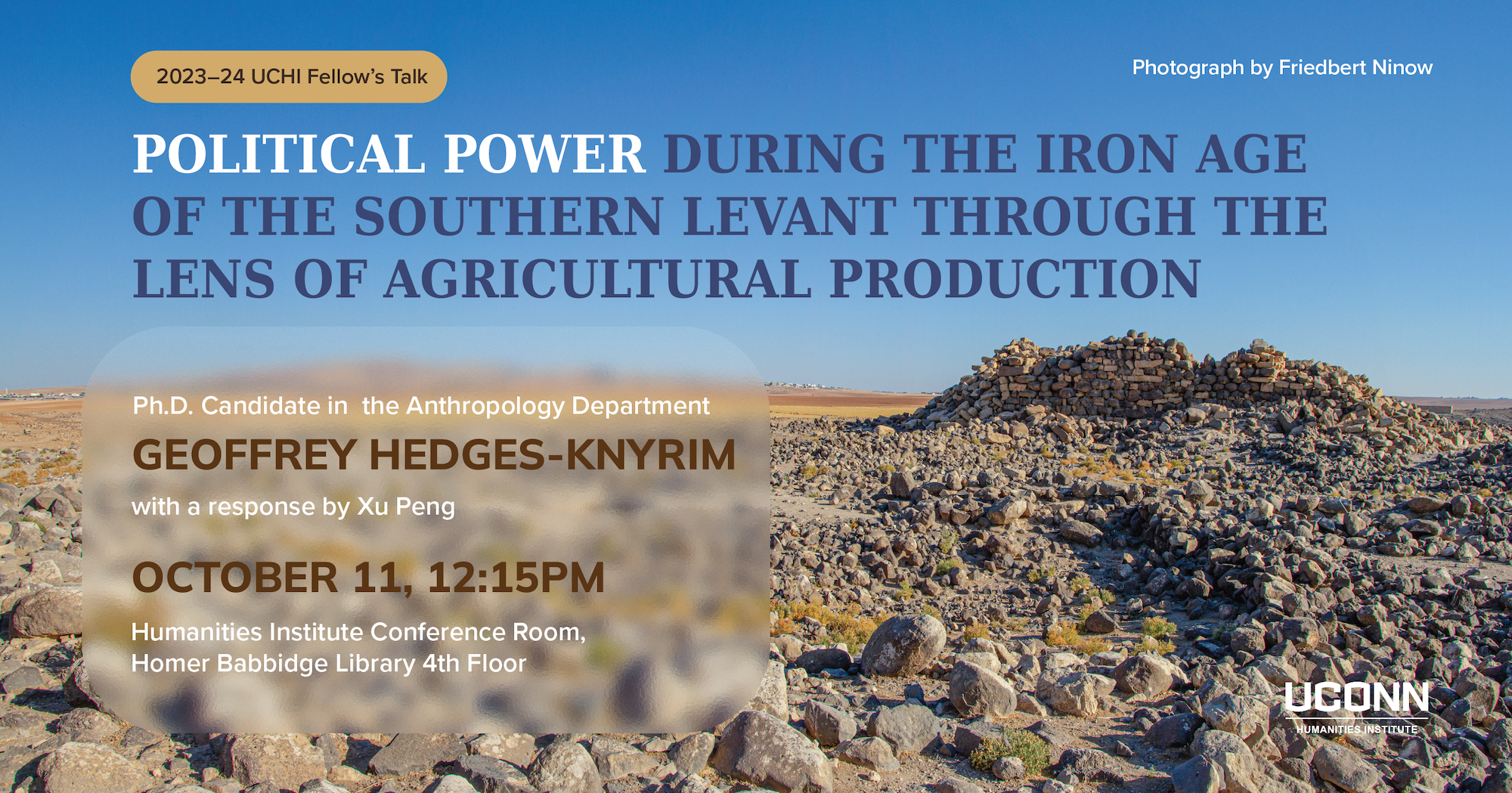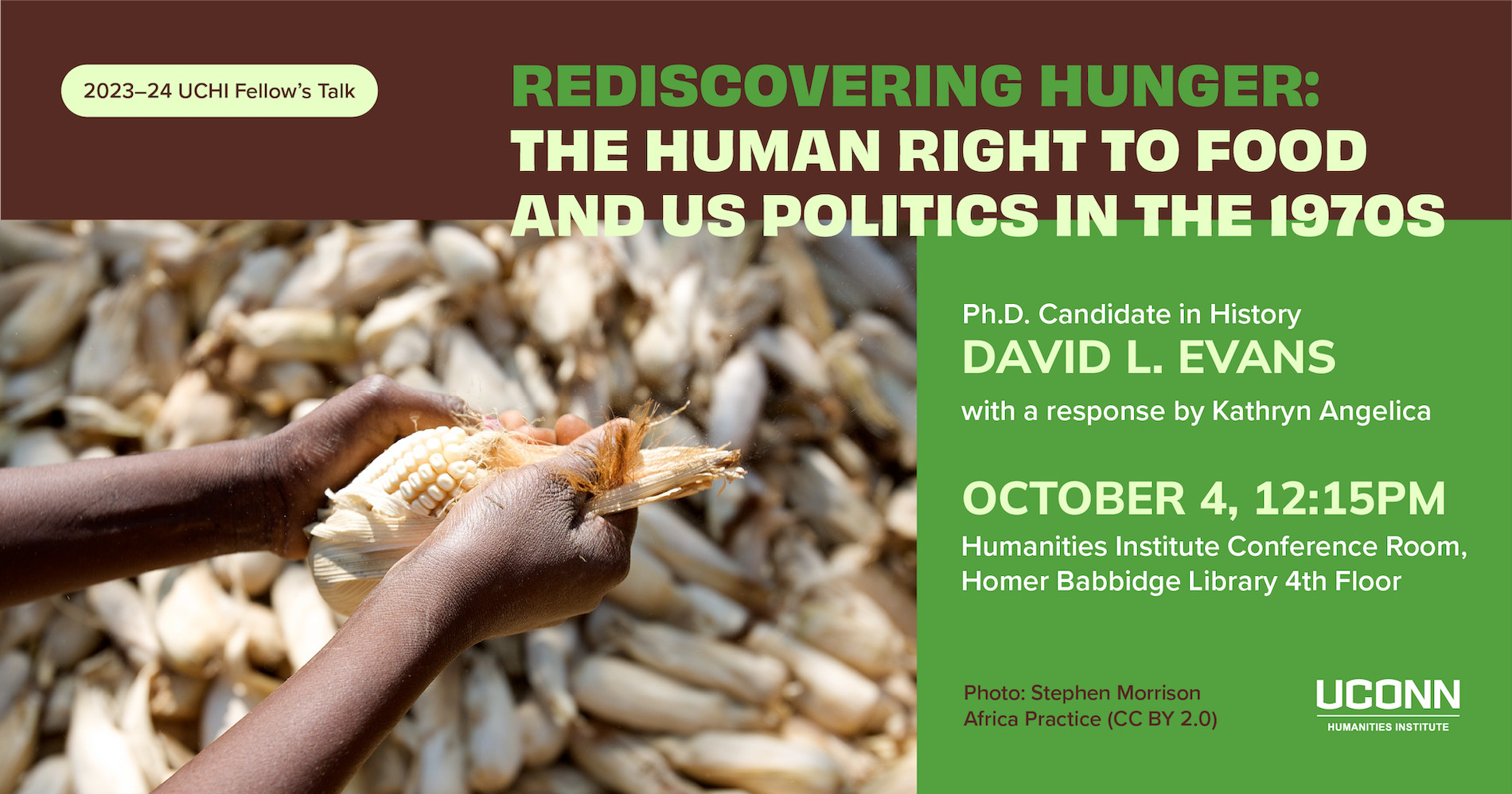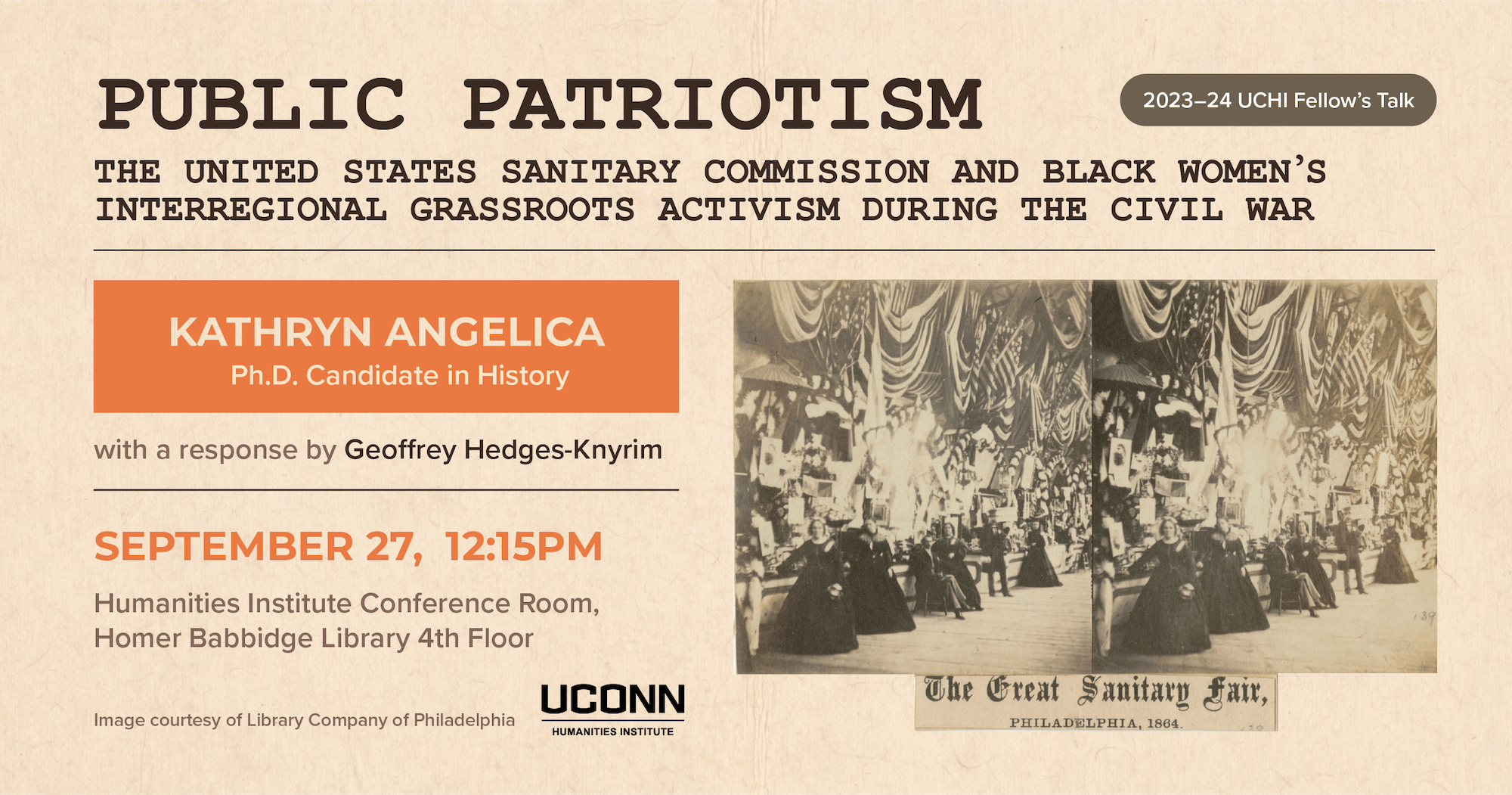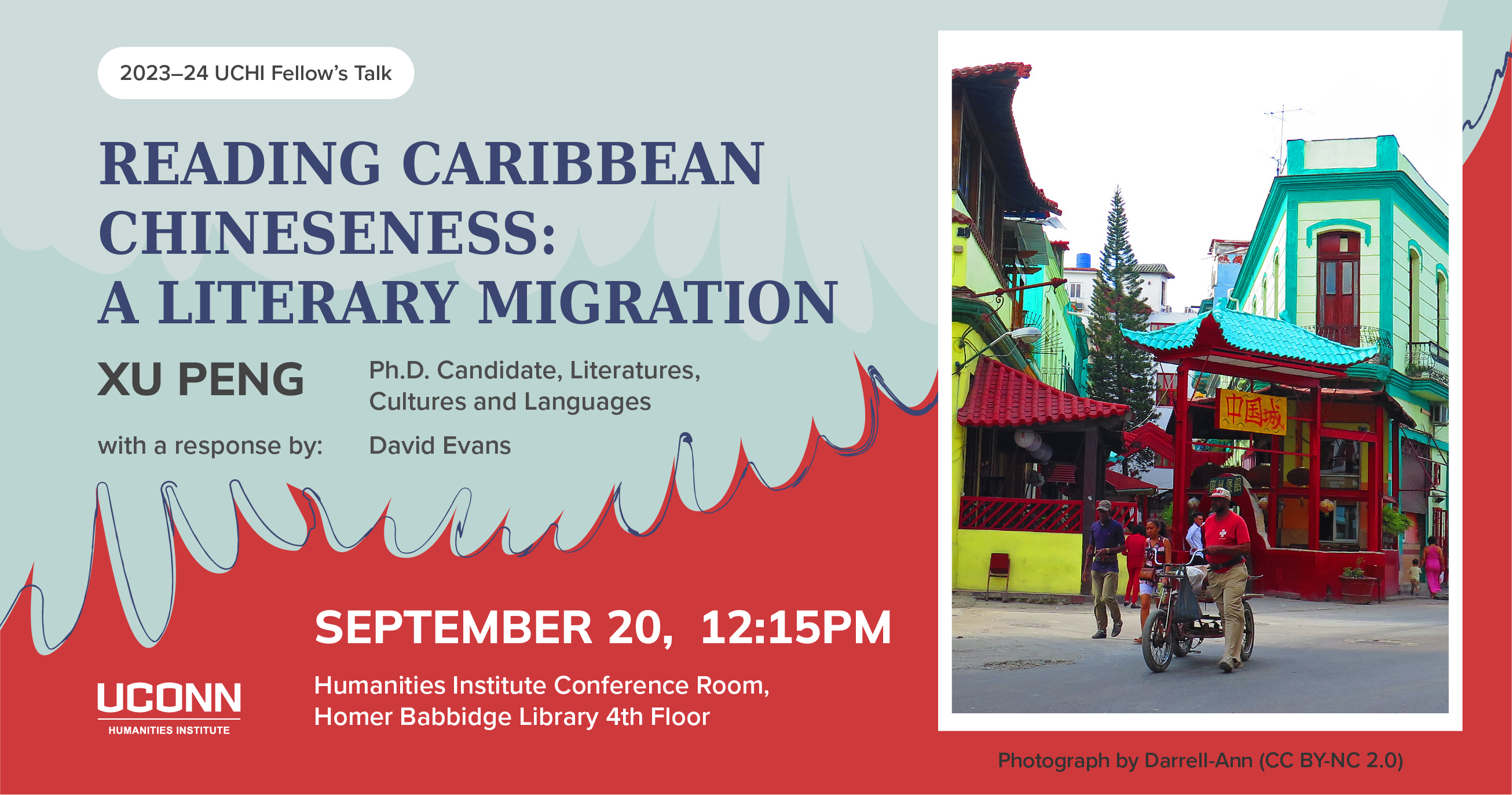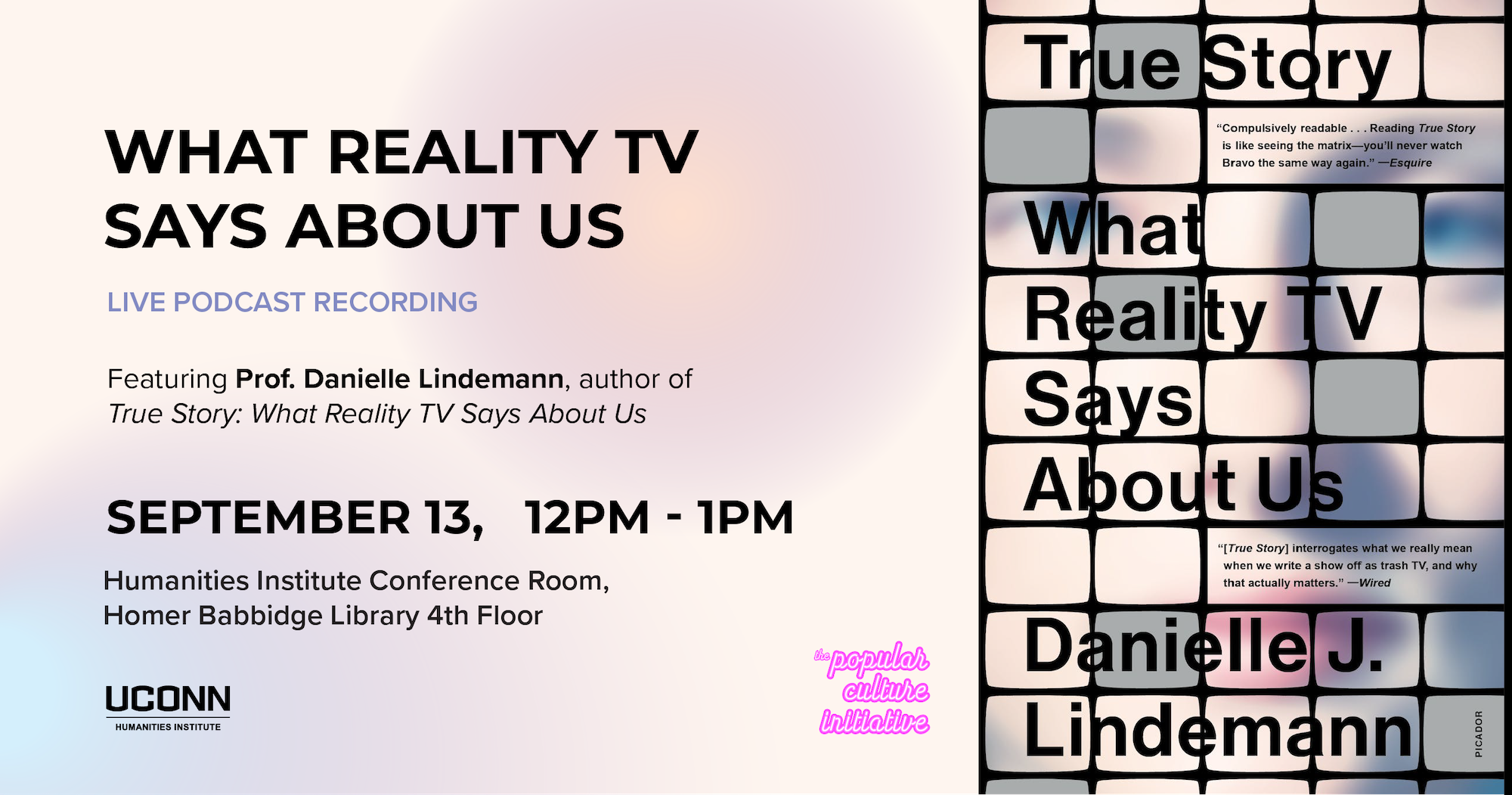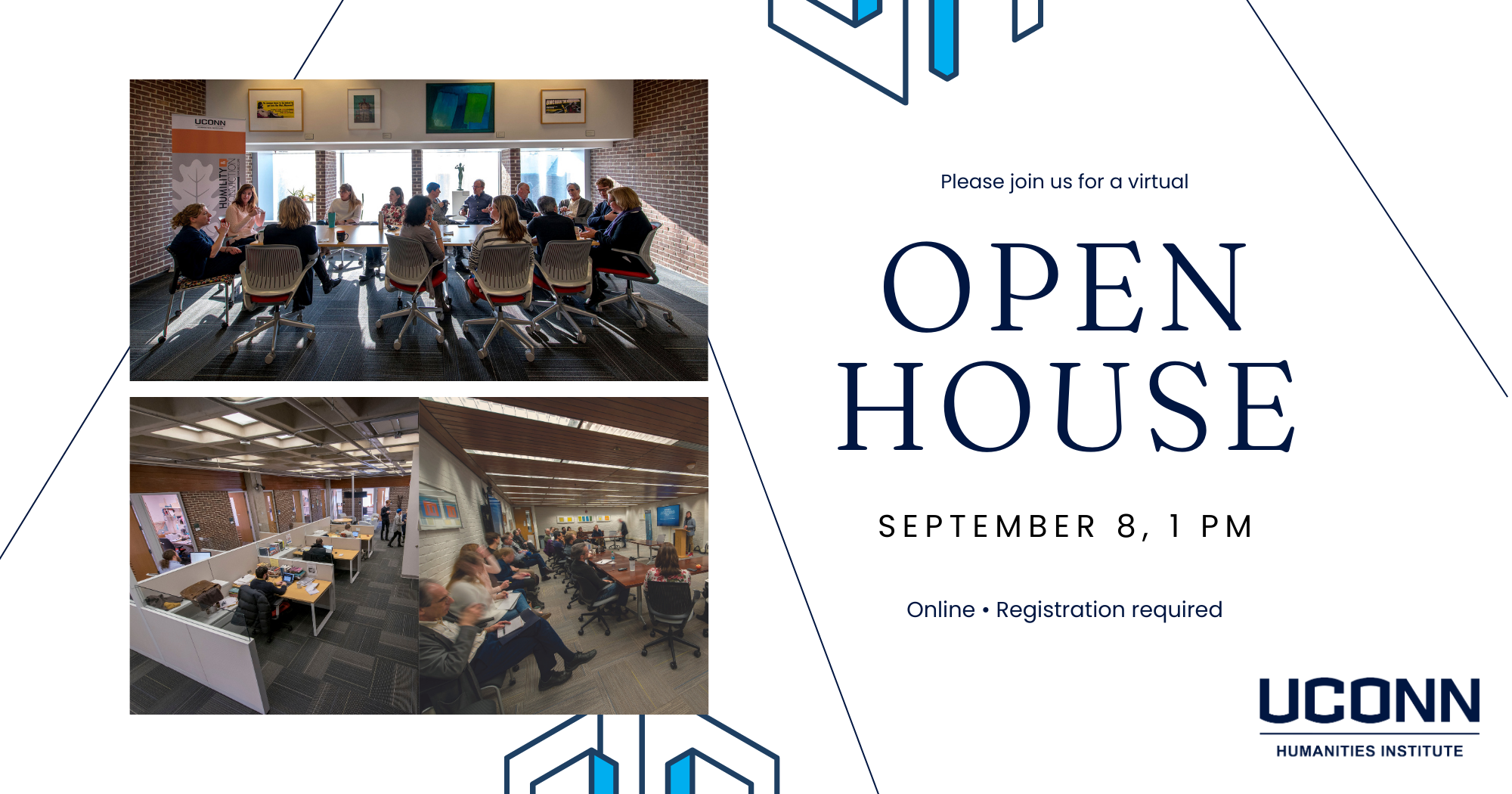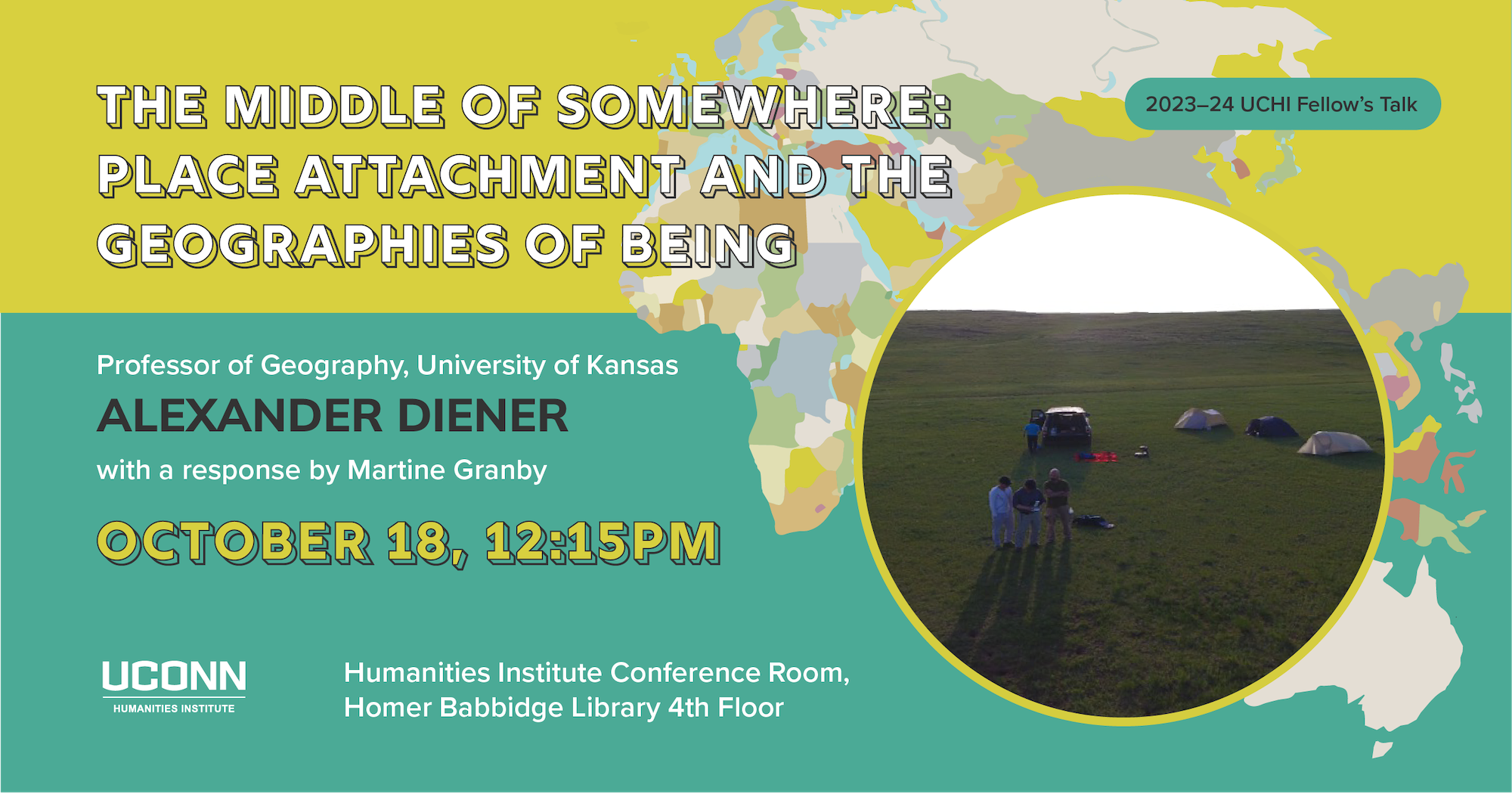
The Middle of Somewhere: Place Attachment and the Geographies of Being
Alexander Diener (Professor of Geography, University of Kansas)
with a response by Martine Granby (Journalism, UConn)
Wednesday, October 18, 2023, 12:15pm, Humanities Institute Conference Room (HBL 4-209)
The event will also be livestreamed with automated captioning.
Register to attend virtually
Place attachment is a burgeoning field of scholarship maturing in theory, method, and application. The phenomenon obviously relates to concepts of residency, including key questions such as: Who moves and why? Who stays and why? Who returns and why? But place attachment also encompasses broader networks of place and geographic contingency, including questions such as: How do place attachments form? Why do people form attachments to some places and not others? How are concepts of home and homeland negotiated within and across varied conditions of mobility? In this talk, Alexander Diener approaches place attachment as an assemblage of materiality, performance, and narration. Rather than being static or deterministic, this model points to people’s varied capacities to make and remake place attachments, and how this shapes everyday routines (e.g. routes to work, shopping, social interactions), major life choices (e.g. places of residence, education, vacations), and identities (e.g. civic, national, religious).
Alexander Diener is a Professor of Geography at the University of Kansas. His interests include borders, urban landscape, place attachment, axial development, migration, and diaspora. He possesses area studies expertise in Central Eurasia and Northeast Asia, having worked extensively in Russian borderlands. Alex has authored and edited nine books, most recently Borders: A Very Short Introduction (2023), The Power of Place in Place Attachment (2023), Invisible Borders: Geographies of Power, Mobility, and Belonging (2022), and Cities as Power: Urban Space, Place, and National Identity (2019). His work has been funded by the NSF, SSRC, IREX, AAG, and the MacArthur Foundation. He has held fellowships at the Kennan Institute of the Wilson Center, the American University of Central Asia, Mongolia National University, George Washington University’s Elliott School of International Affairs, Harvard University’s Davis Center, and Fulbright’s Regional Research Scholar for Central Asia. At UCHI, Alex is writing The Middle of Somewhere, a book about the extensive but understudied effects of place attachment on the human condition.
Martine N. Granby is a nonfiction filmmaker, producer, and video journalist. She is an assistant professor of journalism at the University of Connecticut, with a focus on documentary filmmaking. She holds a joint appointment in the Africana Studies Institute and is an affiliate of UConn’s Women’s Gender and Sexuality Studies Program. Granby produces films that weave between documentary, experimental non-fiction, hybrid, and essay forms. Her creative research focuses on interrogations of and material experimentation with family and collective moving image archives, ethical considerations of found footage usage, and discourses around mental health in BIPOC communities.
Access note
If you require accommodation to attend this event, please contact us at uchi@uconn.edu or by phone (860) 486-9057. We can request ASL interpretation, computer-assisted real time transcription, and other accommodations offered by the Center for Students with Disabilities.
